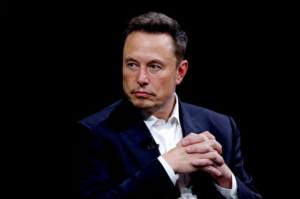The Future of the German Conservative Party: Following Angela Merkel Out?

Courtesy of bloomberg.com
By Eva Lynch
Germany’s leading political party, Angela Merkel’s Christian Democratic Union (CDU), and the near political future of the country were thrown into chaotic disarray when Merkel’s heir apparent resigned earlier this week.
Merkel announced in October 2018 that she would not seek reelection as leader of the CDU, but would continue her tenure as Chancellor until Germany’s next federal election, set for 2021 at the latest. While she declined to officially name a successor, Annegret Kramp-Karrenbauer, often fondly referred to by her initials “AKK”, was widely seen as the most likely choice.
Merkel’s consistency, which has characterized her leadership tenure, remains true even as she moves toward exiting the political stage; once she makes a decision, she does not back down from it. Supposedly, she made her informal choice in Kramp-Karrenbauer as her successor long ago and began grooming her for the position ever since. AKK’s ascension to party leader was carefully planned by Merkel, including her experience as the CDU’s secretary general. Merkel’s hope in this choice was reportedly to continue her legacy of moderate policies by installing a leader with political views similar to her own. With this strategy now in shambles, Merkel’s attempt at the smoothest transition of leadership possible has now sent the biggest shockwaves through Germany since World War II.
Kramp-Karrenbauer, whose likelihood of succeeding Merkel was boosted by her promotion to Minister of Defense in 2019, became involved in politics in the 1980s when she was elected chairwoman of her hometown of Püttlingen’s CDU association. While she originally accepted Merkel’s succession little more than a year ago, Kramp-Karrenbauer has since reversed this decision during a CDU party meeting on February 10. She stated her plans for resignation of her chairship later this year; further, she stated she does not plan to put herself in the running for Chancellor in 2021.
Though she has not named a single reason for her decision, recent criticism Kramp-Karrenbauer has faced regarding her handling of controversies surrounding the recent local elections in the German province of Thuringia may be to blame. Free Democrat Thomas Kemmerich was elected state premier after the far-right Alternative for Germany (AfD) party joined the CDU in endorsing him. Kramp-Karrenbauer’s response to questions of collusion in the election, as this is the first candidate to have won an election with the help of the alt-right since World War II, sparked the criticism that is speculated to have led to her resignation.
Kramp-Karrenbauer said that she would remain party chairwoman until the CDU decides on a suitable candidate for Chancellor; this process could take until the end of the year, if not longer.
In the same response to alt-right collusion, AKK blamed her predecessor in part for her dismal fate, commenting that Merkel’s decision to separate Chancellor and the party chair weakens the CDU and set her up for failure as chairwoman.
Now, German citizens’ eyes are trained on the future of the CDU. It is unlikely that any proposed successor would accept party chairship without a guarantee of candidacy for the chancellorship, given Kramp-Karrenbauer’s experience thus far, meaning Merkel’s timeline may be significantly accelerated. According to the CDU’s most recent statements, they will reconvene on April 25 in a special congress to decide on a new party leader and candidate for chancellor.







